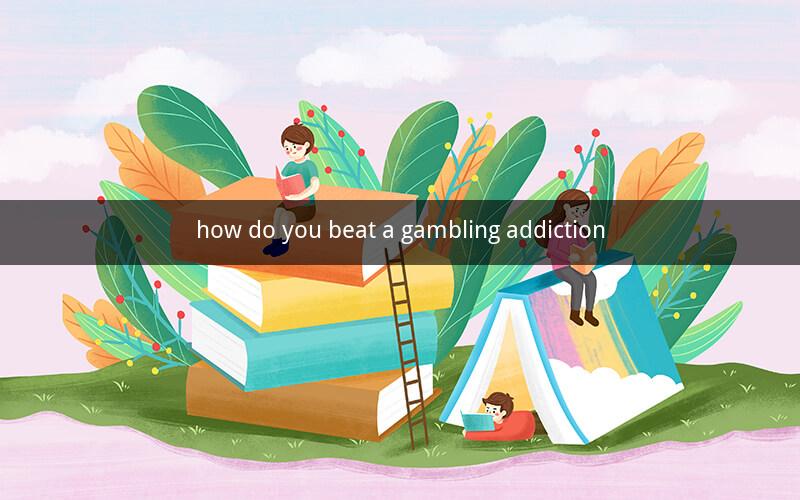
Contents
1. Understanding Gambling Addiction
2. The Signs of a Problem
3. The Impact on Daily Life
4. Seeking Professional Help
5. Treatment Options
6. Support Systems
7. Self-Management Techniques
8. Coping with Relapse
9. The Importance of Family and Friends
10. Long-Term Recovery
Understanding Gambling Addiction
Gambling addiction, also known as problem gambling, is a progressive and chronic condition characterized by an inability to control or stop gambling despite negative consequences. It is a form of impulse control disorder, where the individual continues to engage in gambling activities despite knowing the potential harm it may cause.
The Signs of a Problem
Identifying the signs of a gambling addiction is crucial in seeking help and taking steps towards recovery. Common signs include:
- Preoccupation with gambling thoughts.
- Needing to increase the amount of money or time spent gambling to achieve the same level of excitement.
- Lying to hide gambling activities or the extent of losses.
- Neglecting responsibilities or personal relationships due to gambling.
- Using gambling as a way to cope with stress or emotions.
The Impact on Daily Life
Gambling addiction can have a significant impact on various aspects of an individual's life, including:
- Financial problems, such as debt, bankruptcy, or loss of savings.
- Relationship issues, such as arguments, separation, or divorce.
- Work-related problems, such as missing work, decreased productivity, or losing a job.
- Physical health issues, such as stress, anxiety, depression, or substance abuse.
Seeking Professional Help
Seeking professional help is a vital step in overcoming a gambling addiction. Therapists, counselors, and addiction specialists can provide guidance, support, and treatment tailored to the individual's needs.
Treatment Options
Several treatment options are available for gambling addiction, including:
- Cognitive-behavioral therapy (CBT): Helps individuals identify and change negative thoughts and behaviors associated with gambling.
- Family therapy: Focuses on addressing the impact of gambling addiction on family members and improving communication and relationships.
- Support groups: Provide a safe and supportive environment for individuals to share experiences, receive encouragement, and learn from others.
- Medication: In some cases, medication may be prescribed to help manage symptoms of anxiety or depression.
Support Systems
Establishing a strong support system is essential in overcoming a gambling addiction. This may include:
- Family and friends who are supportive and understanding.
- Support groups, such as Gamblers Anonymous.
- Professional counselors or therapists.
- Online resources and forums.
Self-Management Techniques
Learning self-management techniques can help individuals maintain sobriety and prevent relapse. Some effective strategies include:
- Setting clear boundaries and limits on gambling activities.
- Developing healthy coping mechanisms for stress and emotions.
- Engaging in activities that promote relaxation and well-being.
- Seeking support and guidance from others.
Coping with Relapse
Relapse is a common occurrence in the recovery process. It is important to understand that it does not signify failure but rather an opportunity to learn and grow. Coping with relapse may involve:
- Reflecting on the factors that led to the relapse.
- Seeking immediate support from friends, family, or professionals.
- Revisiting treatment options and support systems.
- Developing a relapse prevention plan.
The Importance of Family and Friends
Family and friends play a crucial role in the recovery process. They can provide:
- Emotional support and encouragement.
- Practical assistance, such as helping with financial or legal issues.
- Understanding and patience as the individual works through their recovery.
Long-Term Recovery
Long-term recovery from a gambling addiction requires ongoing commitment and effort. It is essential to:
- Continue attending support groups and therapy sessions.
- Maintain healthy coping mechanisms and self-management techniques.
- Seek ongoing support from family, friends, and professionals.
- Stay vigilant and aware of triggers that may lead to relapse.
Questions and Answers
1. What are the common signs of a gambling addiction?
- Preoccupation with gambling thoughts, lying to hide gambling activities, neglecting responsibilities, and using gambling as a coping mechanism.
2. How can I seek professional help for a gambling addiction?
- Contact a therapist, counselor, or addiction specialist who specializes in gambling addiction.
3. What are the different treatment options for gambling addiction?
- Cognitive-behavioral therapy, family therapy, support groups, and medication.
4. How can I establish a strong support system for overcoming a gambling addiction?
- Seek support from family, friends, support groups, and professionals.
5. What self-management techniques can help me maintain sobriety?
- Set clear boundaries, develop healthy coping mechanisms, and engage in activities that promote relaxation and well-being.
6. How can I cope with relapse in my recovery process?
- Reflect on the factors that led to the relapse, seek immediate support, and revisit treatment options and support systems.
7. Why is the role of family and friends important in the recovery process?
- They provide emotional support, practical assistance, understanding, and patience.
8. What can I do to maintain long-term recovery from a gambling addiction?
- Continue attending support groups and therapy sessions, develop healthy coping mechanisms, and stay vigilant of triggers.
9. How can I identify triggers that may lead to relapse?
- Reflect on past experiences, pay attention to emotional and physical cues, and seek support when needed.
10. What resources are available for individuals struggling with a gambling addiction?
- Gamblers Anonymous, Gamblers Help, and other support groups and online resources.